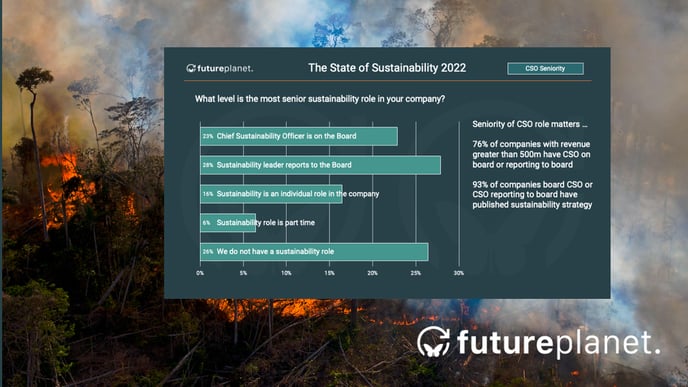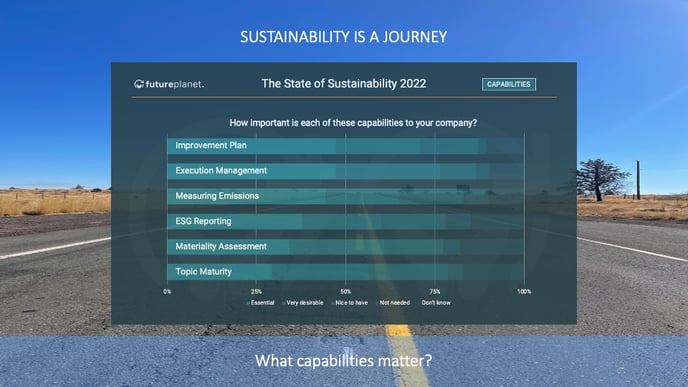What Materiality Topics Matter (Part 1)
Awareness is the first step to changed behaviour …
[[This was originally published as part of the Future Planet State of Sustainability Study.
To request your copy of that report please email Eva.]
Sustainability, in its full scope, is such a broad tapestry of interwoven topics, it can be very hard to choose which thread to pull first. Tugging on the wrong thread may just cause things to unravel and you might be forgiven for being hesitant. The good news is that there are proven Materiality Assessment methodologies that can act as your guide to chart that path.
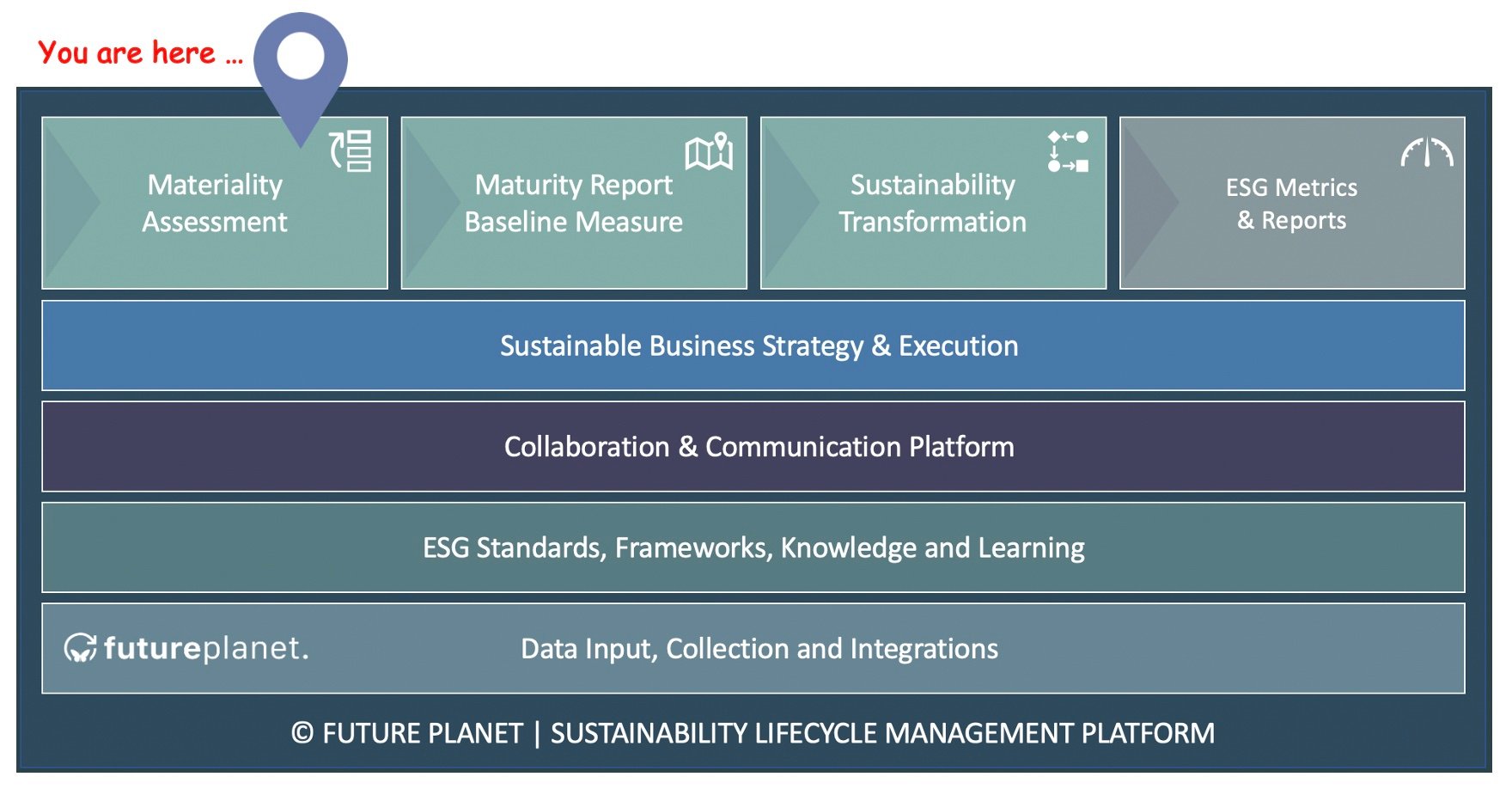
Using the State of Sustainability study as a barometer, we would suggest corporate sustainability behaviour is severely lacking in vision. The top three topics identified as being Critical are very much “company-first, compliance-driven, business-as-usual”.
The question we asked was: “Which of these sustainability topics is important to your company?”
While each of the top three topics (1) Employee Health & Safety, (2) Privacy & Data Security, and (3) Governance & Business Ethics, are very important, in many ways they are just an extension of compliance and governance from “normal business” activities, but they are still the only topics rated as being “Critical” by the majority of the study participants. We believe this is reflective, not of a reticence to make change, but of the complexity and breadth of the sustainability topic, the as yet immaturity of established best practices or standards, and a natural pull towards familiar topics.
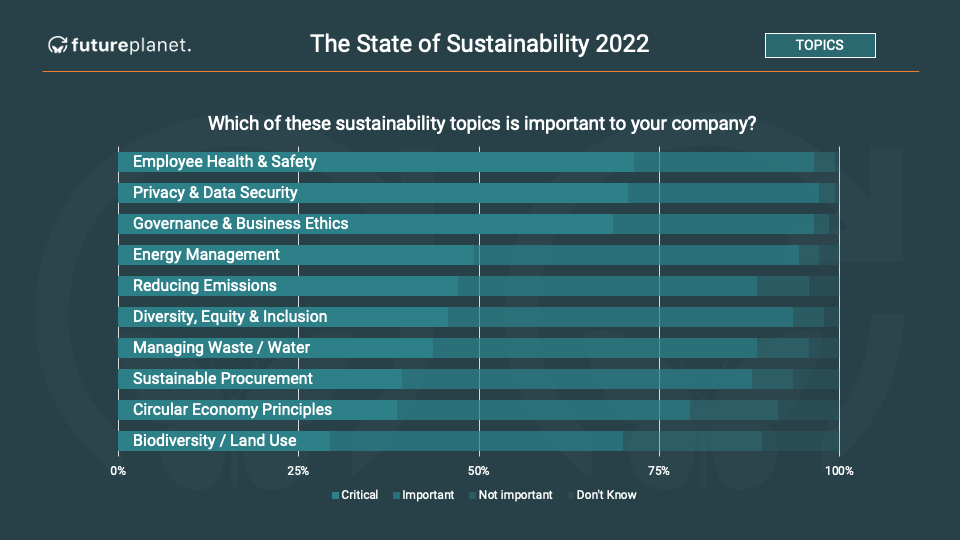
Coming in at #4 and #5 respectively, it is encouraging to see that “Energy Management” and “Reducing Emissions” are viewed as being either Critical or Essential by about nine in ten of our participants. The less positive side of that coin is the anecdotal observation that many seem to equate sustainability with carbon emissions or only related to energy usage. Of course, sustainability is much broader than that.
Awareness is the first step to changed behaviour. We are encouraged by the increased desire from corporations and individuals to learn more about what they can do to advance the sustainability mission. People, for it is people that populate businesses and government, must know enough to see the benefit of change or the detrimental impact of inaction. There is however a lot to be learned by us all.
Consuming less is better than consuming more. Consuming responsibly is better than consuming irresponsibly. Both statements are self-evident, but only if each of us has the information to make those judgements and understand the alternatives.
As we look at the opinions expressed about Managing Waste / Water, we are disappointed that only two in five respondents felt that Managing Waste / Water is Critical to their companies. While we were finalising this study, in late August 2022 – we were upset by reports of the monsoon floods in Pakistan. Each day we read about droughts across many corners of the globe.
While this is clearly a societal challenge of extreme proportions, the economic impacts of drought include crop loss, habitat damage, increased costs of food and water, and rising utility rates from reduced hydropower output.
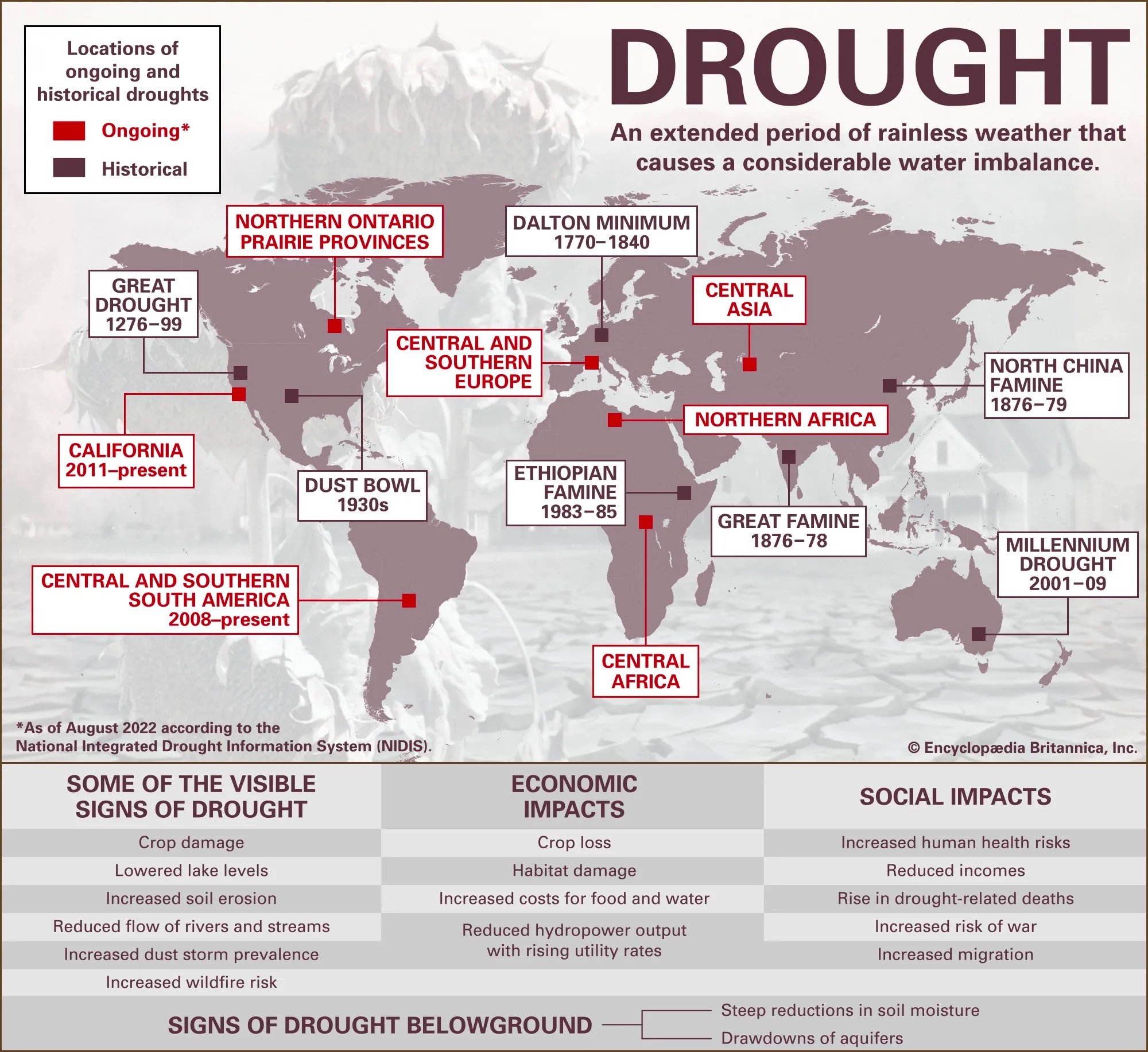
For many businesses, water is the lifeblood. Companies reporting to CDP disclosed $225bn of value at risk due to water in 2021. How we manage water and conserve it is a global problem for business and the planet. We need to solve it together.
Most businesses can save water and save money at the same time.
Similarly, with waste, we know that one third of food produced for human consumption is wasted, but we have also seen wasteful production, corporate procurement processes that overbuy, and inefficient manufacturing operations that waste resource. When corporations are more considered in how and what they purchase they tend to procure and consume less. Sustainable procurement is one of the easier sustainability strategies to adopt. Our evidence from multiple client engagements would suggest that companies can save 17% of their annual spend on goods purchased for resale, as components in manufactured products, or for internal consumption. There is then of course the room in the financial budget to buy more sustainable goods and achieve the correlative reduction in emissions.
Sustainable Procurement should be a topic around every boardroom table.
To be continued … Part 2 will follow over the coming days.
You can review the Future Planet Materiality Assessment software here.
[This blog post was originally published as part of the Future Planet State of Sustainability Study. To request your personal copy of the study please email Eva.]
